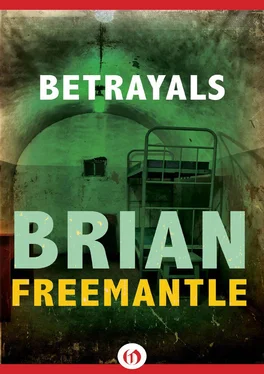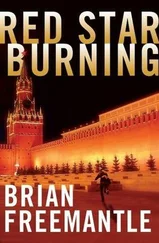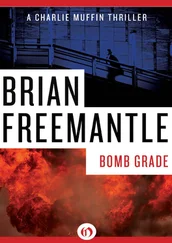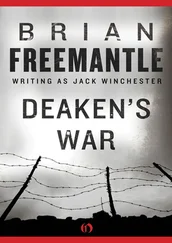Brian Freemantle - Betrayals
Здесь есть возможность читать онлайн «Brian Freemantle - Betrayals» весь текст электронной книги совершенно бесплатно (целиком полную версию без сокращений). В некоторых случаях можно слушать аудио, скачать через торрент в формате fb2 и присутствует краткое содержание. Жанр: Триллер, на английском языке. Описание произведения, (предисловие) а так же отзывы посетителей доступны на портале библиотеки ЛибКат.
- Название:Betrayals
- Автор:
- Жанр:
- Год:неизвестен
- ISBN:нет данных
- Рейтинг книги:5 / 5. Голосов: 1
-
Избранное:Добавить в избранное
- Отзывы:
-
Ваша оценка:
- 100
- 1
- 2
- 3
- 4
- 5
Betrayals: краткое содержание, описание и аннотация
Предлагаем к чтению аннотацию, описание, краткое содержание или предисловие (зависит от того, что написал сам автор книги «Betrayals»). Если вы не нашли необходимую информацию о книге — напишите в комментариях, мы постараемся отыскать её.
Betrayals — читать онлайн бесплатно полную книгу (весь текст) целиком
Ниже представлен текст книги, разбитый по страницам. Система сохранения места последней прочитанной страницы, позволяет с удобством читать онлайн бесплатно книгу «Betrayals», без необходимости каждый раз заново искать на чём Вы остановились. Поставьте закладку, и сможете в любой момент перейти на страницу, на которой закончили чтение.
Интервал:
Закладка:
“One or two papers have kept in touch, but we haven’t said anything about your coming home,” assured her father.
“I’m glad you haven’t.”
“I’m sure everything is going to work out all right,” said her mother.
Janet was surprised it had taken so long: it had usually been her mother’s second or third remark in every conversation since the kidnap. She said she hoped so, wanting her mother to stop talking. It was a gray, pressed-down day with the clouds low against the beginning of the Sussex hills. An uncertain mist kept the windows damp and the tires sounded sticky on the road beneath them. The motorway was jammed, far more crowded than the Washington Beltway, and dirt sprayed up from the stream of cars ahead of them. The traffic did not improve when they left the motorway to head further south, into Sussex, on a lesser-used road. Although it was not cold inside the car Janet shivered and guessed it was another reaction to her tiredness.
Her parents lived in a hamlet just outside Cuckfield and it was still only midmorning when they arrived. Her father carried her case and her mother ran a bath and turned down her bed. When she went into the bedroom Janet was sorry for the impatience she appeared constantly to feel towards the woman. It was, she acknowledged, quite unfair: her mother was doing her best, in her way, to help and to be supportive. Janet further acknowledged that impatience had been her predominant feeling about everything and towards everybody since John had been taken hostage. And that it wasn’t, either, a constructive or useful attitude, whatever that might be.
Janet wanted to sleep and tried hard to do so but it was not the proper sort of rest, more a submission to exhaustion. She was suspended in a conscious sort of a dream, one she knew to be a dream, from which she would awaken: mental images of John Sheridan and William Buckley kept being confused and she could recall whole tracts of commentary from television and newspaper coverage. Willsher featured prominently although not in the Franklin Park office but in the sort of lecture hall she used at the university, and he was at the podium in the manner of an instructor, admonishing her for not listening or understanding and making mistakes through lack of concentration.
When she did awake Janet lay in bed, although not balled up as she had when Hank died, but fully outstretched and reflective, with her hands cupped behind her head. So what the hell did she imagine she was doing by coming here and intending to go on, as she did intend to go on! What could she do that wasn’t already being done, with more expertise and more resources than she could ever have? Unanswerable questions. So she stopped trying to answer them. Janet accepted that a lot of the rationale-if rationale were the right word-lay in her response to Harriet, that night of the decision in the Georgetown house. She had felt-and still felt-guilt at not being able to do anything to combat Hank’s cancer. She knew it to be an illogical-even absurd-feeling because she wasn’t a doctor or a surgeon or a specialist and so there was nothing she could have done, during those last few months. But it still remained an impression that she could not lose: would never lose. She was determined that she would not feel guilty about John. Now there was something she believed she could do, some physical movement it was possible for her to make. Was that all it would be, just moving around to give herself the impression of some sort of useful activity? Janet closed her mind against the inrush of questions: she was going to do, not think.
Janet got up in the late afternoon and agreed to tea she didn’t want and looked at the cuttings book her mother had assembled. She was surprised at the British media coverage engendered by the kidnap and hoped it would help. She wished her mother hadn’t given away the photograph of herself on a camel.
It was not until the early evening, when her mother was busying herself over supper, that Janet was alone with her father. It was he who initiated the conversation.
He poured drinks-sherry for her and whisky for himself-and as he handed the glass to her said: “What does ‘not for long’ mean?”
“I’m sorry?” Janet frowned, momentarily not remembering.
“That’s what your mother said you told her on the telephone: that you were coming home but not for long.”
Janet sipped her drink, unsure how to say it and then decided there was only one way. “I’m going there,” she announced.
Now it was her father’s turn momentarily not to understand. “Going where?”
“Beirut”
For a long time her father stared across the room at her, unmoving, his face expressionless, and when he responded his voice, predictably, was just as controlled. He said: “That’s ridiculous: you wouldn’t even get a visa.”
“Cyprus then,” insisted Janet. “Since the war there’s been as much Lebanese activity there as in Beirut anyway.”
“To do what?” asked the man.
“A bloody sight more than is being done at the moment to find John!”
Her father shook his head, still talking evenly. “It’s a fantasy, darling. There’s nothing you can do.”
“I can, if you’ll help me!”
“Me?”
“You’ve still got friends in the Foreign Office. And in the area.”
He shrugged. “A few, I suppose.”
“Introduce me,” demanded Janet. “Personally in London: by letter where you can in the Middle East.”
“For what! ” repeated the man.
“They could make inquiries, couldn’t they? Isn’t that how it was done, in the embassies where you served: questions from London relayed to you and in turn taken up with the authorities?”
“There isn’t any authority in the Lebanon any more: not the sort of authority you’re talking about,” argued her father. “You should know that better than most!”
“There is still diplomatic representation in Beirut, nominal though it might be,” Janet argued back. “John’s not the only person being held: there must be some contact with these groups! Some links!”
“Darling,” said the man, gently. “Don’t you think the Americans will have explored every possibility like that?”
“I think they’re just sitting around, doing bugger all.”
Her father hesitated, as if he were surprised at her swearing. He said: “That isn’t true: can’t be true. And you know it.”
“ I want to do something!”
“OK,” he said, a diplomat whose entire career had involved patient argument and inevitable compromise. “What happens if people I know do have contacts with friends in Beirut? And those friends have the sort of links you think must exist? And through the chain you do get some sort of information about John? What then?”
Now it was Janet who hesitated, not having thought that far ahead. “Tell the Americans,” she said. She indicated the scrapbook that lay on the settee between them and went on: “Tell them and let them know that if they don’t try to do something to get him out I’ll ask why, through the newspapers.”
“Get into a public slanging match, you mean?”
“If that’s what it takes.”
“Haven’t you thought of an inherent danger?”
“I don’t care what happens to me,” said Janet, thoughtlessly.
“I wasn’t thinking about you at that moment,” said her father, still gentle. “I was thinking of what could happen to John if some suggestion were given as to his whereabouts and demands made that America do something to get him out. Do you imagine whoever’s got him would just sit around and wait for it to happen?”
Janet bit her lip, uncomfortably. “Threaten,” she said, retreating. “Just threaten to go to the newspapers unless they did something.”
“As you mentioned it,” said the man. “What about you?”
Читать дальшеИнтервал:
Закладка:
Похожие книги на «Betrayals»
Представляем Вашему вниманию похожие книги на «Betrayals» списком для выбора. Мы отобрали схожую по названию и смыслу литературу в надежде предоставить читателям больше вариантов отыскать новые, интересные, ещё непрочитанные произведения.
Обсуждение, отзывы о книге «Betrayals» и просто собственные мнения читателей. Оставьте ваши комментарии, напишите, что Вы думаете о произведении, его смысле или главных героях. Укажите что конкретно понравилось, а что нет, и почему Вы так считаете.












